Artificial Intelligence and Virtual Processes
The packaging industry is evolving rapidly, and advanced technologies are paving the way for more efficient operations. For IT managers in packaging manufacturing facilities, Artificial Intelligence (AI) and virtual processes present exciting opportunities for enhanced productivity, streamlined operations, and improved decision-making. By integrating tools like PlanetTogether with leading ERP systems such as SAP, Oracle, Microsoft, Kinaxis, and Aveva, IT managers can unlock the potential of AI-driven solutions, making virtual processes central to efficient production planning and supply chain management.
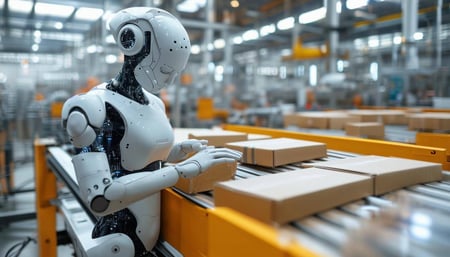
AI in Packaging Manufacturing
Artificial Intelligence is transforming how manufacturing operates, including the packaging sector. Traditionally, packaging processes relied heavily on manual planning, human oversight, and reactive adjustments to ensure quality and speed. With AI, there’s an evolution toward predictive, automated processes that optimize workflows in real-time. From quality control to inventory management and scheduling, AI's role is expanding and bringing significant efficiencies to packaging manufacturing.
Incorporating AI into a packaging facility means leveraging machine learning (ML) algorithms to analyze production data, monitor equipment performance, and even predict maintenance needs. With a system like PlanetTogether integrated with ERP solutions like SAP or Oracle, AI can create an intelligent network that gathers, processes, and interprets data across the production lifecycle. This enables a shift from manual and time-consuming processes to automated, data-driven decisions.

Virtual Processes and the Smart Factory
Virtual processes refer to digital simulations and data-driven models that can mimic and analyze production environments in a virtual space before applying changes in the real world. Virtual processes allow packaging manufacturers to experiment with new configurations, test efficiency improvements, and optimize resources—all without disrupting actual production.
In a packaging manufacturing environment, the application of virtual processes is invaluable. For instance, simulating a new packaging line setup can reveal potential bottlenecks or process flaws. This virtual testing can save time, reduce costs, and prevent disruptions by identifying problems before they arise in the physical world.
![]()
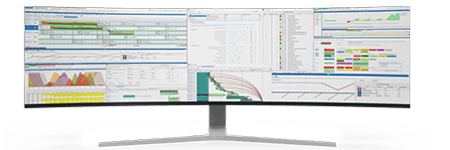
Key Benefits of AI and Virtual Processes for Packaging Manufacturing IT Managers
Implementing AI and virtual processes in a packaging facility provides several distinct benefits for IT managers focused on continuous improvement and competitive advantage:
Enhanced Production Planning
AI algorithms embedded in PlanetTogether, integrated with systems like SAP or Kinaxis, can analyze historical production data, current demand forecasts, and available resources to create optimized production schedules. By processing thousands of variables at once, AI-powered scheduling can deliver highly accurate and adaptive production plans, reducing idle times and maximizing output.
Predictive Maintenance and Reduced Downtime
AI-driven predictive maintenance, combined with data from an ERP system like Oracle or Microsoft, helps anticipate machinery issues before they cause downtime. Machine learning algorithms analyze equipment data to detect patterns indicating wear and tear, so that maintenance can be scheduled proactively. This reduces unexpected breakdowns and keeps production lines running efficiently.
Improved Inventory Management
AI integrated with ERP solutions can track inventory in real-time, forecasting future needs based on demand and production schedules. By using AI for predictive demand forecasting, packaging manufacturers can optimize inventory levels, ensuring the right materials are available at the right times. PlanetTogether’s integration with an ERP system such as SAP enhances this capability, creating a more responsive and lean inventory management system.
Quality Control Automation
AI-powered vision systems can inspect packaging products for defects or inconsistencies with greater speed and accuracy than human inspection. This real-time defect detection can reduce waste, improve product quality, and ensure that only the best products leave the factory floor. Integrating AI-powered quality control with an ERP system helps track defective batches, analyze trends, and address issues quickly.
Adaptive Production Scheduling
Through the integration of PlanetTogether and ERP systems like Aveva, IT managers can use AI-driven adaptive scheduling tools that respond to changing demand, labor availability, and production conditions. By adapting to real-time variables, such scheduling tools maximize resource utilization and reduce waste, all while meeting production deadlines and quality standards.
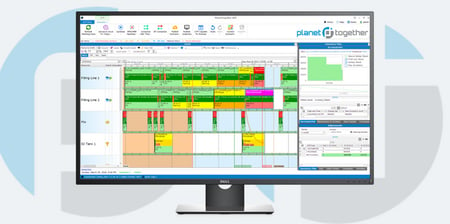
How to Integrate PlanetTogether with SAP, Oracle, Microsoft, Kinaxis, and Aveva for AI-Driven Operations
Integrating PlanetTogether with ERP systems is a strategic step for IT managers looking to leverage AI and virtual processes. Each of these ERPs brings unique features that can complement AI-powered planning and decision-making in PlanetTogether:
SAP Integration
SAP’s robust data management capabilities provide a comprehensive view of production, sales, and inventory data, which AI systems can use to make informed decisions. By integrating SAP with PlanetTogether, IT managers can use AI to optimize production schedules based on real-time inventory and supply chain data. For example, SAP’s predictive analytics can be enhanced by PlanetTogether’s scheduling capabilities, creating a fully AI-driven production planning solution.
Oracle Integration
Oracle offers powerful AI capabilities within its ERP platform. When integrated with PlanetTogether, Oracle’s data insights can feed directly into production scheduling and planning, enabling IT managers to create more accurate, responsive production plans. This combination allows packaging facilities to automate decision-making across scheduling, resource allocation, and quality control.
Microsoft Dynamics 365 Integration
Microsoft Dynamics 365 offers extensive analytics and visualization tools, ideal for IT managers in packaging manufacturing. Integrating with PlanetTogether allows real-time data flow, enabling AI-driven decisions based on up-to-the-minute production and inventory information. This integration is particularly useful for adaptive scheduling and optimizing work orders as they change.
Kinaxis Integration
Kinaxis provides strong supply chain and demand planning capabilities. By integrating PlanetTogether, IT managers can take advantage of Kinaxis’ AI-driven forecasting and demand planning, aligning production schedules to meet real-time demand. This reduces inventory waste and ensures just-in-time production, especially valuable in a volatile packaging industry where demand may fluctuate rapidly.
Aveva Integration
Aveva is known for its digital twin technology, which creates virtual models of production environments. Integrating PlanetTogether with Aveva allows packaging manufacturers to test production scenarios virtually, experimenting with line configurations, schedules, and workflows. This enables packaging IT managers to simulate changes before implementation, ensuring that new processes will be efficient and effective.
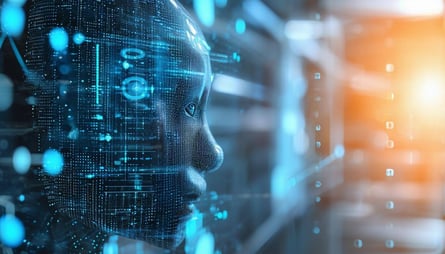
Challenges and Considerations in Implementing AI and Virtual Processes
While the potential benefits of AI and virtual processes are immense, there are challenges to consider:
Data Quality and Integration
Effective AI solutions rely on high-quality data. Integrating PlanetTogether with ERP systems like SAP or Oracle requires a seamless data exchange process, ensuring accurate data for analysis and decision-making. Poor data quality can lead to inaccurate predictions and reduce AI effectiveness.
Change Management and Workforce Adaptation
Introducing AI-driven processes and virtual simulations can require a shift in workforce mindset. IT managers should focus on training and supporting employees as they adapt to new technology. Clear communication about the benefits of AI can help gain workforce buy-in.
Scalability and System Flexibility
AI solutions must be scalable to handle future production needs. Choosing ERP systems that easily integrate with PlanetTogether and can expand as the company grows is crucial. Scalable, flexible systems ensure that AI and virtual processes can adapt alongside business growth.
Cybersecurity Risks
With increased data collection and system connectivity comes a heightened risk of cybersecurity threats. IT managers must ensure robust cybersecurity measures are in place to protect sensitive production data, especially when integrating multiple platforms like PlanetTogether with ERP systems.
For IT managers in packaging manufacturing, leveraging AI and virtual processes is not just an option but a strategic requirement. By integrating PlanetTogether with ERP systems such as SAP, Oracle, Microsoft, Kinaxis, and Aveva, packaging facilities can automate, optimize, and innovate like never before. AI-driven virtual processes bring the power of predictive insights, adaptive scheduling, and seamless inventory management, helping manufacturers meet modern challenges head-on.
The journey to a smarter, more efficient packaging operation begins with harnessing the combined power of AI, virtual processes, and ERP integration. Are you ready to take your manufacturing operations to the next level? Contact us today to learn more about how PlanetTogether can help you achieve your goals and drive success in your industry.
Topics: PlanetTogether Software, Enhanced Production Planning and Scheduling, Improved Inventory Management, Integrating PlanetTogether, Quality Control Automation, Adaptive Production Scheduling, Packaging Manufacturing, Predictive Maintenance and Downtime Reduction







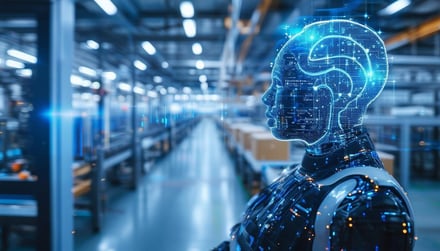













LEAVE A COMMENT